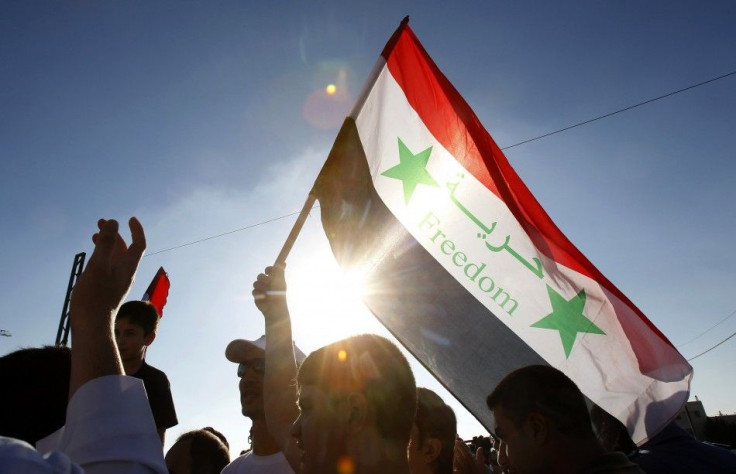Syrian Turmoil Is Catching Israel's Attention
ANALYSIS

On Sunday, Israeli Vice Prime Minister Shaul Mofaz endorsed using military intervention to stop the ongoing crisis in Syria.
Since in the not-distant past the powers chose military intervention in Libya, here the required conclusion would be immediate military intervention to bring down the [Bashar al-] Assad regime, Mofaz said on Army Radio on Sunday.
The statement is uncharacteristic of Israel, which has long felt isolated within the Middle East. Despite using harsh words toward Iran in the past year, Israel, not wanting to rock the boat, has remained at a distance from the Arab Spring nations, keeping quiet about the popular revolts and regime changes reshaping the region. But with Syria still in the throes of a 15-month-old crisis, Israel has found it difficult to stay silent as Assad's violent crackdown threatens to drift southward.
The Syrians who treat their people that way will do the same to us if they have the opportunity, Major General Yair Naveh said during a radio address on Sunday night.
Israel and Syria have technically been in a state of war for decades. Relations between the countries became passive toward the end of the rule of Assad's father, Hafez, although they are still at odds over the Golan Heights, which Israel seized from Syria after the 1967 Six-Day War.
But for Israel now, neither Bashar al-Assad nor a political battle over the disputed area are the real concern. Although a number of Israeli ministers have condemned, along humanitarian grounds, the Syrian leaders' bloody crackdown on opposition voices, they now assert that the violence is something that needs to be stopped before it spreads.
In the Golan Heights, there is an instability developing that is on the rise, as a result of events in Syria, including in the zone adjacent to the border, Chief of Staff Lieutenant General Benny Gantz said last week.
The violence in Syria is becoming increasingly sectarian, and with it comes a regional discord that could move toward an unwilling Israel. Lines are being drawn between Shiite (and Alawite) and Sunni Muslims, which threatens to bring Syria's neighbors into the conflict.
Iran, which first allied with Syrian over its shared hatred of Sunni Muslim Saddam Hussein and also shares a virulent contempt toward Israel, has already sent Quds Special Forces to Syria to help Assad, while the Lebanese-Shiite Hezbollah is also backing the regime.
Iran, Syria and Hezbollah make up the triumvirate of Israel's bitterest enemies.
This is a slaughter carried out not only by the Syrian government. It is being helped by Iran and Hezbollah, Prime Minister Benjamin Netanyahu told his cabinet on Sunday. The world should understand what kind of environment we (Israel) live in.
Meanwhile, a new report from the Kuwait Times claims that dozens of Kuwaitis have crossed the Turkish-Syrian border with the aim of fighting with the Free Syrian Army rebel group, along with new soldiers from Saudi Arabia, Algeria and Pakistan, all of which are majority Sunni nations.
Alongside a looming proxy war, the sectarian fighting in Syria also has potential to create an instability that Syria has not known in recent decades. Moreover, Syrian opposition fighters are already a disjointed group -- there is fear of radicalized elements and insurgents gaining more of a foothold among rebel factions, which is what has happened in Libya and Southern Yemen.
Al Qaida-linked militiamen have allegedly wreaked havoc in Homs, Syria, already, and Israel fears that Assad's chemical weapons stockpiles could fall into either these terrorists' hands or into the hands of Hezbollah, which has fought a war with Israel already.
Syria has built up the biggest chemical weapons arsenal in the world and has missiles and rockets capable of reaching any part of Israeli territory, Major General Naveh said in his speech. According to Naveh, this arsenal includes nerve, mustard and sarin gas.
© Copyright IBTimes 2025. All rights reserved.





















